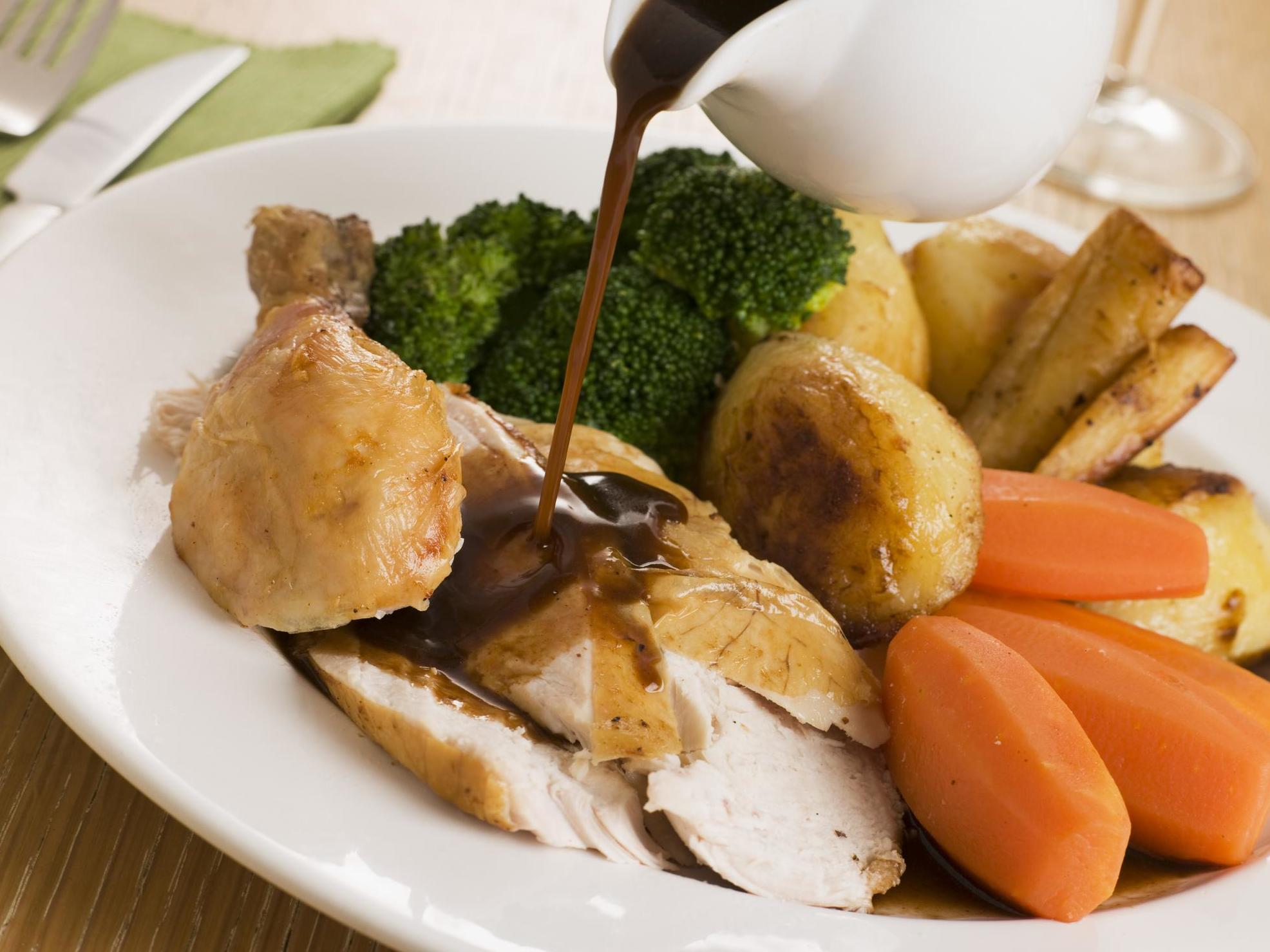Cooking roast dinner produces air pollution as bad as heavily polluted city streets, study reveals
Scientists shocked by levels of potential harmful particles emitted by charred meat and vegetables over course of a day

Your support helps us to tell the story
From reproductive rights to climate change to Big Tech, The Independent is on the ground when the story is developing. Whether it's investigating the financials of Elon Musk's pro-Trump PAC or producing our latest documentary, 'The A Word', which shines a light on the American women fighting for reproductive rights, we know how important it is to parse out the facts from the messaging.
At such a critical moment in US history, we need reporters on the ground. Your donation allows us to keep sending journalists to speak to both sides of the story.
The Independent is trusted by Americans across the entire political spectrum. And unlike many other quality news outlets, we choose not to lock Americans out of our reporting and analysis with paywalls. We believe quality journalism should be available to everyone, paid for by those who can afford it.
Your support makes all the difference.Cooking a roast dinner drives indoor air pollution up to levels found in some of the most polluted cities in the world, according to new research.
The act of roasting and boiling meat, potatoes and vegetables pushes particulates in the air up to 13 times the levels recorded on the filthy streets of central London.
Even making a piece of toast can briefly cause pollution spikes that exceed safe levels set by health authorities.
While their effects are short-lived, scientists are concerned by the health impact scraps of burned food, chemicals from gas stoves and droplets of hot oil are having in kitchens worldwide.
The new results came from a pioneering study that for the first time has traced the full extent of indoor air pollution in a conventional home.
Cooking, cleaning and personal care items like deodorant all emit tiny particles into the atmosphere, which have been linked to issues ranging from heart and lung diseases to mental health problems.
In the UK alone, tiny particulates known as PM2.5s contribute to around 30,000 early deaths every year.
However, while pollution on city streets and in many workplaces is strictly regulated, indoor air pollution tends to be overlooked.
Dr Marina Vance, an environmental engineer at the University of Colorado Boulder, was part of a team that decided to rectify the problem by creating a purpose-built house in Texas to comprehensively monitor this hidden threat.
As part of this project, the scientists spent a day cooking a Thanksgiving dinner, as well as other common meals including a full English breakfast and a stir fry.
Using a complicated array of equipment, they watched as pollutant levels crept up while the brussels sprouts and turkey sizzled in the oven.
For over eight hours, PM2.5 levels were above 10 micrograms per cubic metre, peaking at over 200 micrograms per cubic metre for nearly an hour.
“This compares to a very polluted city,” said Dr Vance.
In London the average for the year is around 15 micrograms per cubic metre, while in heavily polluted cities like Delhi they tend to number in the hundreds.
“It’s a known fact that cooking emits particles and other air pollutants, but the sheer levels we were able to reach in this study were surprising,” said Dr Vance.
The researchers also measured high levels of ultrafine particles considered particularly dangerous as they can penetrate deep into lungs and other tissues.
“Inhaling particles in general is detrimental to health – that’s well known and well-studied, regardless of composition,” she added.
However, given the lack of detailed research in this area, scientists are still unsure exactly how dangerous these relatively brief surges of pollution are compared the constant exposure experienced in cities.
“I think we are early on in the process of starting to answer the question,” said air pollution scientist Professor Joost de Gouw of the University of Colorado, who was not involved in the study.
“What’s clear though is people spend a lot of time indoors and they are exposed in some cases to much higher levels than what you see outdoors.”
Dr Vance presented her results at the American Association for the Advancement of Science (AAAS) meeting in Washington DC.
While people should not be put off cooking indoors, she said there were certain precautions that can be taken to minimise exposure.
Using an extractor fan above the oven should remove a lot of the harmful particles, and cooking on an electric stove may also cut pollution as the open flames of gas hobs can be major sources of particles.
Join our commenting forum
Join thought-provoking conversations, follow other Independent readers and see their replies
Comments